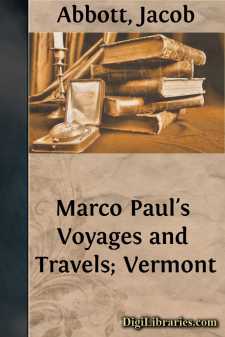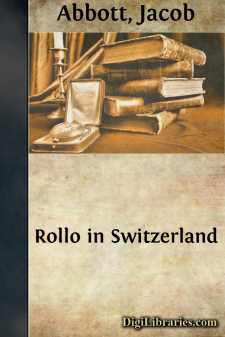Categories
- Antiques & Collectibles 13
- Architecture 36
- Art 48
- Bibles 22
- Biography & Autobiography 816
- Body, Mind & Spirit 145
- Business & Economics 28
- Children's Books 17
- Children's Fiction 14
- Computers 4
- Cooking 94
- Crafts & Hobbies 4
- Drama 346
- Education 58
- Family & Relationships 59
- Fiction 11834
- Foreign Language Study 3
- Games 19
- Gardening 17
- Health & Fitness 34
- History 1378
- House & Home 1
- Humor 147
- Juvenile Fiction 1873
- Juvenile Nonfiction 202
- Language Arts & Disciplines 89
- Law 16
- Literary Collections 686
- Literary Criticism 179
- Mathematics 13
- Medical 41
- Music 40
- Nature 179
- Non-Classifiable 1768
- Performing Arts 7
- Periodicals 1453
- Philosophy 66
- Photography 2
- Poetry 897
- Political Science 203
- Psychology 45
- Reference 154
- Religion 516
- Science 126
- Self-Help 85
- Social Science 82
- Sports & Recreation 34
- Study Aids 3
- Technology & Engineering 59
- Transportation 23
- Travel 463
- True Crime 29
Sort by:
by:
Jacob Abbott
The Houses of York and Lancaster. A real heroine. Margaret of Anjou was a heroine; not a heroine of romance and fiction, but of stern and terrible reality. Her life was a series of military exploits, attended with dangers, privations, sufferings, and wonderful vicissitudes of fortune, scarcely to be paralleled in the whole history of mankind. Two great quarrels. She was born and lived in a period...
more...
by:
Jacob Abbott
Chapter I. Journeying. When Mr. Baron, Marco's father, put Marco under his cousin Forester's care, it was his intention that he should spend a considerable part of his time in traveling, and in out-of-door exercises, such as might tend to re-establish his health and strengthen his constitution. He did not, however, intend to have him give up the study of books altogether. Accordingly, at one...
more...
by:
Jacob Abbott
Chapter I. "Which London shall we visit first?" said Mr. George to Rollo. "Why," rejoined Rollo, surprised, "are there two of them?" "Yes," said Mr. George. "We may almost say there are two of them. Or, at any rate, there are two heads to the monster, though the immense mass forms but one body." While Mr. George was saying these words Rollo had been standing on...
more...
by:
Jacob Abbott
King Richard's Mother. 1137-1154Richard the Crusader.A quarrelsome king.King Richard the First, the Crusader, was a boisterous, reckless, and desperate man, and he made a great deal of noise in the world in his day. He began his career very early in life by quarreling with his father. Indeed, his father, his mother, and all his brothers and sisters were engaged, as long as the father lived, in...
more...
by:
Jacob Abbott
THE LITTLE LANDING. A short distance from where Rollo lives, there is a small, but very pleasant house, just under the hill, where you go down to the stone bridge leading over the brook. There is a noble large apple tree on one side of the house, which bears a beautiful, sweet, and mellow kind of apple, called golden pippins. A great many other trees and flowers are around the house, and in the little...
more...
by:
Jacob Abbott
Getting a Passport. The last day that Rollo spent in Paris, before he set out on his journey into Switzerland, he had an opportunity to acquire, by actual experience, some knowledge of the nature of the passport system. Before commencing the narrative of the adventures which he met with, it is necessary to premise that no person can travel among the different states and kingdoms on the continent of...
more...
by:
Jacob Abbott
Chapter I.Four different modes of life enumerated.There are four several methods by which the various communities into which the human race is divided obtain their subsistence from the productions of the earth, each of which leads to its own peculiar system of social organization, distinct in its leading characteristics from those of all the rest. Each tends to its own peculiar form of government,...
more...
by:
Jacob Abbott
Chapter I. 1533-1536Greenwich.The hospital.Its inmates.Greenwich Observatory.Manner of taking time.Travelers, in ascending the Thames by the steamboat from Rotterdam, on their return from an excursion to the Rhine, have often their attention strongly attracted by what appears to be a splendid palace on the banks of the river at Greenwich. The edifice is not a palace, however, but a hospital, or,...
more...
by:
Jacob Abbott
CHAPTER I. THE MOUTH OF THE KENNEBEC. One summer, Forester and Marco Paul formed a plan for going to Quebec. Marco was very much interested in going to Quebec, as he wanted to see the fortifications. Forester had told him that Quebec was a strongly-fortified city, being a military post of great importance, belonging to the British government. Marco was very much pleased at the idea of seeing the...
more...
by:
Jacob Abbott
Chapter I. The Arrangements. Gentlemen and ladies at the hotels, in London, generally dine about six or seven o'clock, each party or family by themselves, in their own private parlor. One evening, about eight o'clock, just after the waiter had removed the cloth from the table where Rollo's father and mother, with Rollo himself and his cousin Jennie, had been dining, and left the table...
more...











